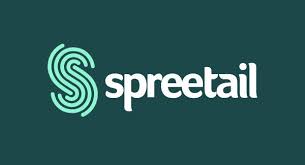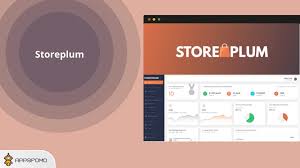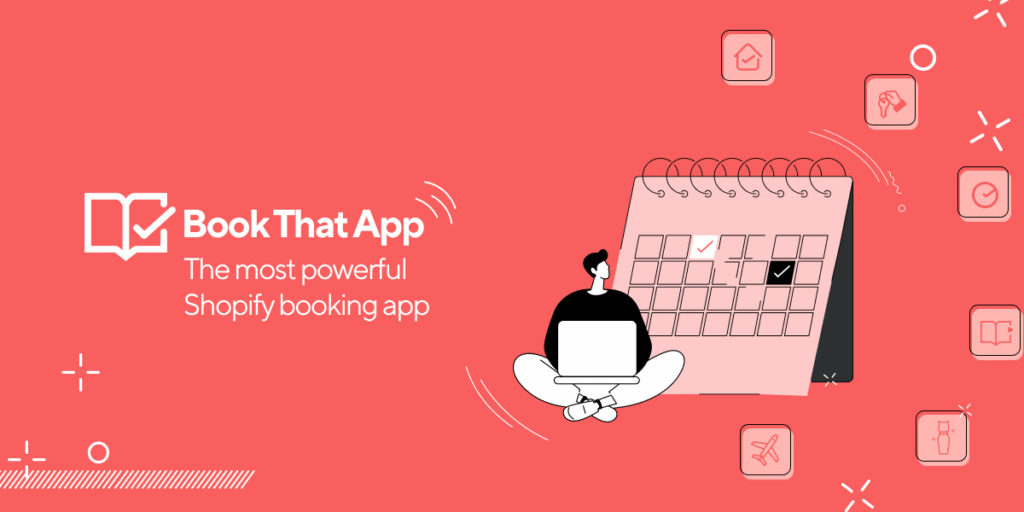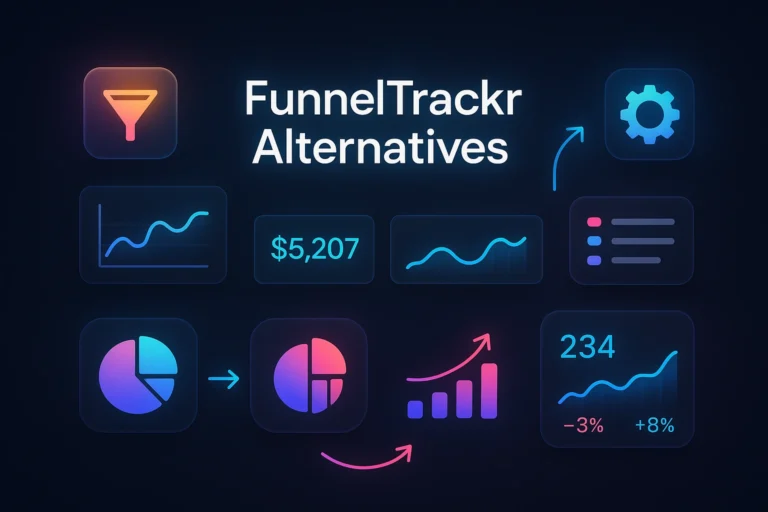7 MarketLeap Alternatives: Comprehensive Guide to E-commerce Acceleration Platforms
In today’s fast-paced digital world, e-commerce continues to evolve at breakneck speed. If you’re a brand looking to supercharge your online growth, chances are you’ve come across MarketLeap and wondered if it’s the best fit—or if there are better options out there. I’ve been right where you are, searching for that perfect e-commerce solution that ticks every box, from robust analytics to seamless logistics and multi-channel expansion. In this in-depth article, I’ll walk you through the top 7 MarketLeap alternatives, exploring each one’s unique strengths, who they’re best for, and practical advice to help you make the right choice for your business.
Also read:
7 BrandFloat Alternatives
7 TrendHive Alternatives for Trend Discovery in 2025
7 EmailSpire Alternatives: Comprehensive Guide for 2025
7 ScrollMagnet Alternatives
7 CopyNest Alternatives: Top AI Writing Tools for 2025
What is MarketLeap?
MarketLeap is an AI-powered platform designed for D2C (Direct to Consumer) brands. It’s best-known for integrating data-driven analytics, multi-channel selling, and streamlined logistics under one roof. The idea: help brands expand into new marketplaces efficiently, optimizing every stage from inventory management to sales reporting.
Why Consider MarketLeap Alternatives?
As impressive as MarketLeap is, it isn’t always the ideal fit for every brand. Here’s why you might be on the lookout for alternatives:
- Pricing: Some users might find MarketLeap’s pricing model better suited for larger businesses.
- Feature Gaps: You might need a tool with more advanced analytics, better integrations, or stronger global marketplace reach.
- Scalability: As your business expands, you may want platforms built for larger-scale operations or specialized needs.
- Ease of Use: Maybe you want something simpler and more user-friendly—especially if you’re new to e-commerce.
Whatever your reason, rest assured: multiple powerful platforms can help your brand soar. Let’s dive in.
Top 7 MarketLeap Alternatives
1. Spreetail

Spreetail stands out as a full-service e-commerce acceleration platform particularly suited for brands that deal with hard-to-ship or bulky products. If you manufacture or sell items like outdoor gear, sporting equipment, or large home goods, Spreetail’s end-to-end logistics expertise is invaluable. They manage everything from warehousing to shipping, easing the operational load for sellers. Beyond logistics, Spreetail provides efficient marketplace onboarding across major platforms like Amazon and Walmart, enabling brands to scale rapidly across multiple channels. Their advanced performance analytics give actionable insights to optimize sales strategies, making them especially beneficial for brands aiming to expand quickly while maintaining operational control. However, Spreetail tends to serve more established brands with complex shipping needs, so startups or very small businesses might find the service a bit heavy for their scale.
Key Features
- End-to-end logistics and fulfillment solutions.
- Marketplace onboarding and multi-channel sales management.
- Advanced performance analytics to guide strategy.
- Operational support—from warehousing to shipping.
Pros & Cons
| Pros | Cons |
|---|---|
| Excellent for complex, logistics-heavy items | May be overkill for small businesses |
| Full-service operational support | Primarily focused on physical products |
| Streamlines multi-market selling | Geared toward established brands |
2. 1digitalstack.ai
For brands driven by data and looking for intelligent growth strategies, 1digitalstack.ai offers a powerful solution. This platform leverages cutting-edge generative AI and predictive analytics to provide deep insights into market trends, customer behavior, and competitor activity. It’s ideal for D2C and B2C companies wanting to take a deeply analytical approach to revenue growth. 1digitalstack.ai’s tools include smart recommendations that help brands optimize marketing spend, pricing, and product launches in real-time. While it requires some degree of technical comfort to unlock its full potential, brands focused on optimizing growth with AI-driven decisions will find it highly valuable. That said, it does not include logistics management, so brands needing a full operational stack might consider combining it with other tools.
Key Features
- Generative AI that powers actionable marketing and sales insights.
- Revenue growth tools and deep analytics dashboards.
- Real-time competitor benchmarking.
Pros & Cons
| Pros | Cons |
|---|---|
| Best-in-class AI/analytics | May require some technical acumen |
| Smart recommendations for fast scaling | Could be costly for very small businesses |
| Ideal for performance-obsessed brands | Not a full logistics provider |
3. SiluLink
SiluLink is a niche but highly effective platform designed mainly for brands from Asia, especially China, aiming to enter Western e-commerce markets such as the US and Europe. Its core strength lies in Amazon operation services, offering specialized cross-border commerce support, multilingual assistance, and localized strategy consulting. SiluLink helps streamline international marketplace entry, which can be daunting due to language, regulatory, and logistical hurdles. If your brand is focused on expanding globally through Amazon, SiluLink provides hands-on operational management and market insights tailored to bridge the East-West commerce gap. However, it’s less suited for companies outside this specific scenario or those not heavily invested in Amazon.
Key Features
- Seamless Amazon operations management.
- Strategic consulting for international expansion.
- Multilingual support bridging East-West business cultures.
Pros & Cons
| Pros | Cons |
|---|---|
| Superb for cross-border, Amazon-focused brands | Niche appeal |
| Bridging Asia-to-West e-commerce gap | May not suit non-Amazon sellers |
| Hands-on consulting and localization | Focuses on marketplace, not owned stores |
4. Pattern
Established brands looking to optimize their presence across multiple global marketplaces will find Pattern a robust ally. This platform excels in data-driven sales management, helping brands identify bottlenecks and optimize product listings with granular marketplace insights. With a broad global footprint—including North America, Europe, Asia-Pacific, and the Middle East—Pattern is designed for companies serious about scaling internationally. Its advanced supply chain and inventory management features further streamline operations to improve overall sales efficiency. While Pattern offers powerful tools, it generally targets mid-to-large-sized enterprises due to its onboarding complexity and comprehensive features.
Key Features
- Ratio-driven sales management and analytics.
- Marketplace optimization tools for North America, Europe, APAC, and the Middle East.
- Advanced supply chain and inventory management.
Pros & Cons
| Pros | Cons |
|---|---|
| Global marketplace reach | May require longer onboarding |
| Data-driven sales optimization | Suited more for mid-large enterprises |
| Powerful supply chain automation |
5. Storeplum

If you are a small business owner or a new e-commerce entrepreneur without technical expertise, Storeplum provides a simple and affordable way to launch an online store quickly. Its no-code setup means you won’t need to hire developers or spend weeks building your shop. Storeplum’s clean interface offers easy inventory and order management alongside basic analytics, making it a perfect fit for startups or solo sellers in crafts, home decor, or boutique products. Although it lacks advanced AI-driven features or deep logistics integration, Storeplum delivers the essentials for getting started in e-commerce without hassle or steep costs.
Key Features
- Easy online store setup—no coding required.
- Streamlined inventory, order, and catalog management.
- Clean, user-friendly interface.
Pros & Cons
| Pros | Cons |
|---|---|
| Perfect for beginners | Limited advanced analytics |
| Affordable plans | Not specialized for big enterprise |
| Fast to launch | More basic than MarketLeap alternatives |
6. Packable
For brands eager to master multi-marketplace selling with integrated logistics and sourcing, Packable is a comprehensive platform tailored to streamline complex selling operations across Amazon, Walmart, eBay, and others. Packable automates order routing, fulfillment, and inventory syncing to eliminate manual errors and delays. It also supports real-time product sourcing, helping brands stay competitive and agile. This platform is ideal for health supplements, consumer electronics, or any brand with diverse product lines seeking operational efficiency across multiple online channels. Slightly better suited for brands with a higher sales volume, Packable enhances marketplace reach without sacrificing control.
Key Features
- Marketplace integration across Amazon, Walmart, eBay, and more.
- Automated order routing, fulfillment, and logistics management.
- Real-time product sourcing.
Pros & Cons
| Pros | Cons |
|---|---|
| Existing marketplace expertise | May require a higher volume to benefit |
| Simplified logistics | Focused on established product lines |
| Data-rich selling environment | Less ideal for single-platform brands |
7. BookThatApp

Unique among the alternatives, BookThatApp perfectly serves Shopify merchants or businesses that combine products and services with appointment or class bookings. If your e-commerce store includes service-based offerings—such as yoga classes, repair services, workshops, or consultations—BookThatApp integrates seamless schedule management and calendar syncing directly into your Shopify store. It facilitates automated reminders, group bookings, and customization of booking slots, delivering an excellent user experience for customers booking time-sensitive services. Its focus on services means it’s not ideal if you sell physical goods exclusively, but for mixed-model or service-centric stores, it adds invaluable functionality that MarketLeap and others typically lack.
Key Features
- Seamless calendar and booking integration for Shopify stores.
- Automated reminders and scheduling for services/products.
- Extensive customization for time slots, group bookings, and more.
Pros & Cons
| Pros | Cons |
|---|---|
| Unique for appointment-selling brands | Works best for Shopify users |
| Intuitive booking and calendar tools | Not built for product-only stores |
| Boosts service-based commerce | Less relevant for large B2C brands |
Other Notable Mentions
While the seven options above are the cream of the crop, a few more deserve a quick mention:
- StoreHippo: Mobile-first commerce platform popular with businesses eyeing omni-channel selling and rapid scalability.
- Azoo, Aqurate, Markeplay: Each focuses on cutting-edge features like AI-powered personalization, dynamic risk management for inventory, and ultra-simple, no-code integrations.
Comparison Table
Let’s compare the top 7 MarketLeap alternatives side by side, focusing on who they’re ideal for, their standout features, and unique benefits.
| Platform | Ideal For | Notable Features | Unique Benefit |
|---|---|---|---|
| Spreetail | Brands with hard-to-ship goods | Logistics, operational support, analytics | Ops efficiency for niche brands |
| 1digitalstack.ai | Data-driven expansionists | Generative AI, predictive analytics, revenue tools | Smart, automated decision-making |
| SiluLink | Asian brands scaling globally | Amazon ops, intl strategy, cross-border logistics | Asia-to-West e-commerce support |
| Pattern | Global marketplace managers | Advanced analytics, optimization, automation | Rapid, data-driven market growth |
| Storeplum | New/small e-commerce businesses | No-code store setup, basic analytics, easy inventory | Quick launch for beginners |
| Packable | Brands selling across marketplaces | Marketplace integration, logistics, sourcing | Mastery of multi-channel operations |
| BookThatApp | Service/product booking brands | Shopify integration, booking & scheduling | Unique mix of service/product sales |
Choosing the Right Platform
How to Prioritize Your Needs
Selecting the right e-commerce acceleration platform isn’t just about features—it’s about fit. Here’s how to cut through the noise:
- Marketplace Reach: Do you want to sell on global platforms or focus on a single region?
- AI & Analytics: Are you data-obsessed, or do you prefer simplicity and automation?
- Ease of Use: Is fast onboarding (with limited technical know-how) important to you?
- Scalability: Will your chosen platform grow with you as your business expands?
- Pricing Considerations: How does each tool align with your current and future budget?
Practical Use Cases
Which Platform Excels for Each Scenario?
Let’s translate this into real-world decisions with a few hypothetical (yet common) situations:
- Global Expansion:
Use Pattern or SiluLink. They both shine for brands seeking to break into new territories, especially with complex logistics and regulatory needs. - Rapid Go-to-Market:
Spreetail and Packable are your best bet if you need to accelerate marketplace onboarding and get products into consumers’ hands fast. - Service/Product Booking:
BookThatApp is tailor-made for businesses selling appointments or classes—think health, beauty, repair, or workshops layered onto e-commerce. - Data-Driven Growth:
If growth through optimization and insight is your focus, 1digitalstack.ai outshines the rest, giving you actionable intelligence for smarter moves.
Frequently Asked Questions
Q1: What makes a platform better than MarketLeap?
The answer depends on your unique needs. Some alternatives offer stronger AI, deeper analytics, or better integrations for specific marketplaces; others focus on e-commerce store building, multi-channel operations, or service-based sales.
Q2: How important is logistics integration?
It’s huge—especially as you scale. Tools like Spreetail and Packable manage warehouse-to-door fulfillment, reducing headaches and freeing up your time to focus on growth.
Q3: Which tool offers the best value for SMBs?
Storeplum stands out for its ease-of-use, fast setup, and affordable plans, making it perfect for smaller businesses or solopreneurs just getting started.
Conclusion
Actionable Takeaways
There’s truly no one-size-fits-all platform. Think not only about where you are right now, but where you want your business to be a year—or even five years—from now. Ask yourself:
- Am I more interested in speed or depth of analytics?
- Do I need robust support for hard-to-ship products?
- Is my business model product-based, service-based, or both?
- What’s my core marketplace focus?
Call to Action
I’d love to hear about your journey! Have you used one of these MarketLeap alternatives? Planning to try one soon? Share your story in the comments below, or reach out for personalized advice—I know just how much a tailored Recommendation can transform your e-commerce journey.
Stay curious, test new tools, and don’t be afraid to switch platforms when your business needs outgrow your current tech. Here’s to your e-commerce success!







